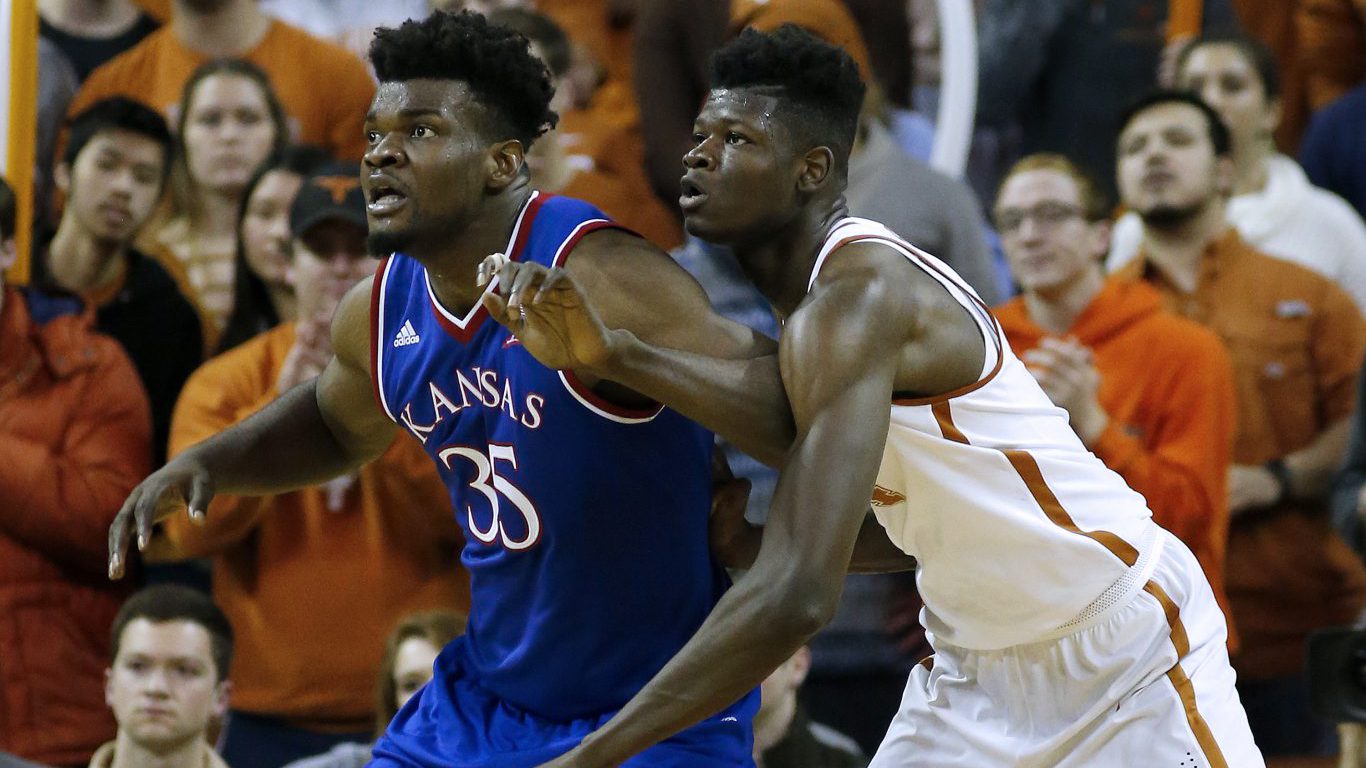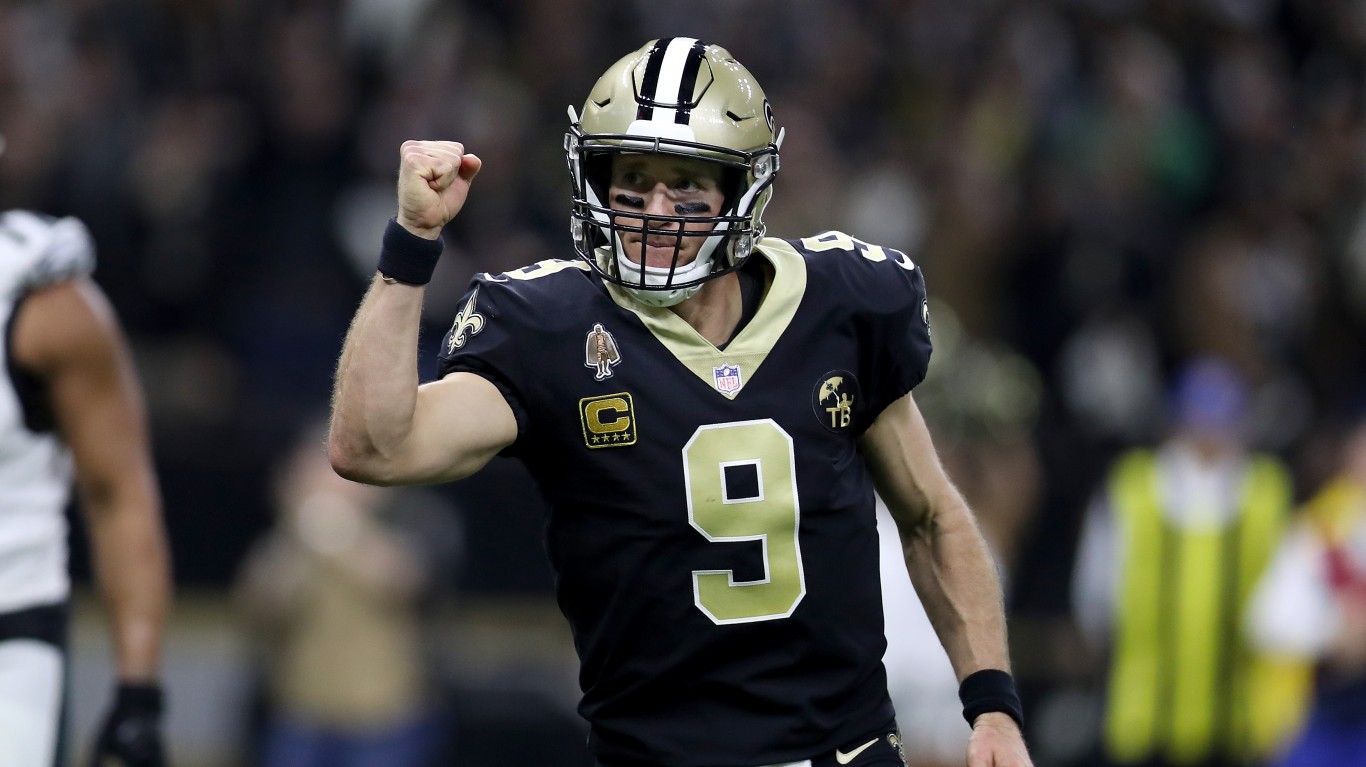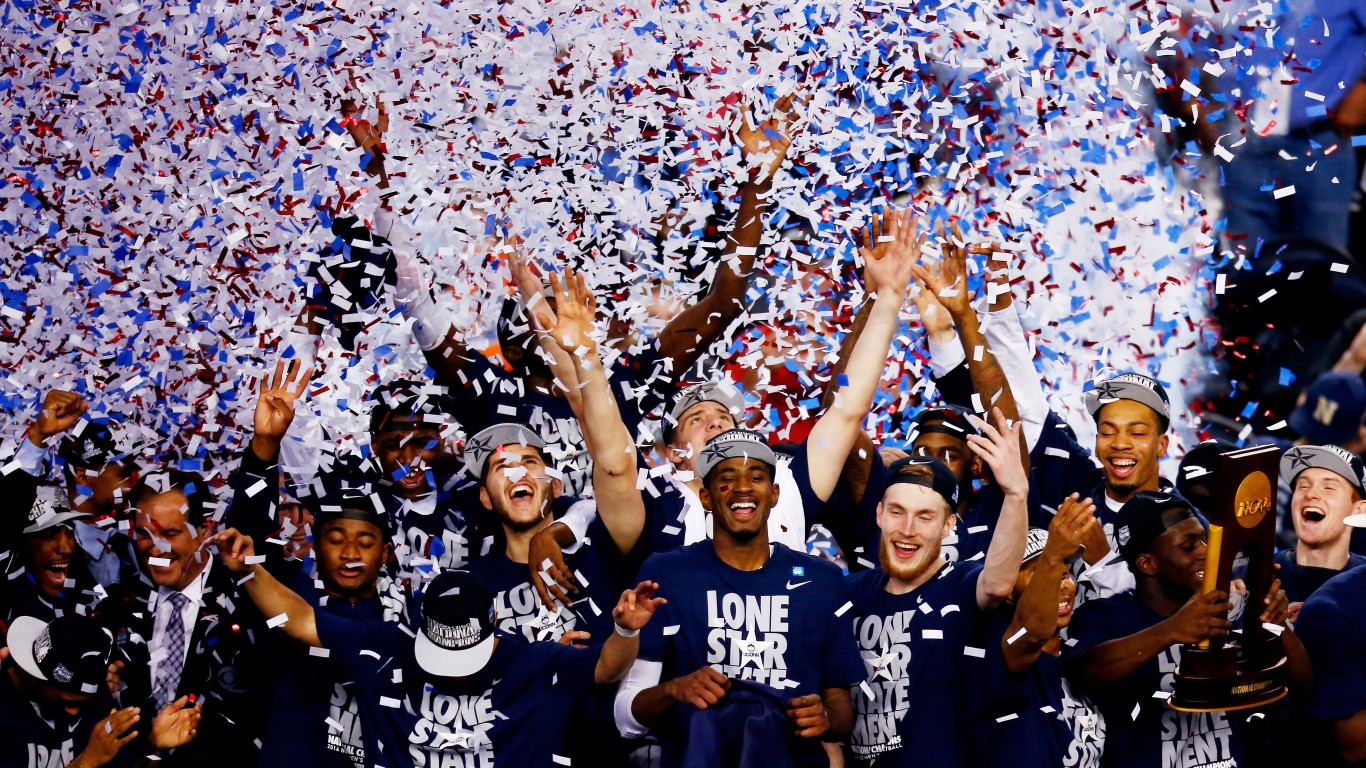
March Madness is one of the most exciting times of the year for sports fans – there are dozens of games to watch, brackets to make, and exciting upsets to enjoy. Though spectators love watching a Cinderella team advance deep into the NCAA Tournament, the reality is that a powerhouse team almost always wins the championship.
College basketball is a sport of the haves and the have-nots. Since the tournament began in 1939, 59 of the 82 championships have been won by just 15 different programs. These schools have found the recipe for success, by recruiting star players and hiring experienced coaches that can get the most out of their teams.
To determine the teams with the most NCAA basketball championships, 24/7 Tempo reviewed data from sports data site Sports Reference. Titles vacated due to NCAA rules infractions were not considered.
A handful of schools have established blue blood programs, consistently producing teams that have a good chance to win it all year after year. These teams have top-notch facilities and great coaches, as well as a track record of success in the tournament and a proven history of producing NBA players. These factors make it easier to recruit talented high school players, keeping the cycle of success going.
Many of the teams on this list won all their titles within a few years or even back to back. These tournament victories were often spurred on by a superstar player, or a team loaded with NBA talent. In some cases, players like Bill Russell or Michael Jordan showed the skills that would later make them NBA superstars. These are the teams with the most Hall of Famers.
Click here to see teams with the most NCAA basketball championships
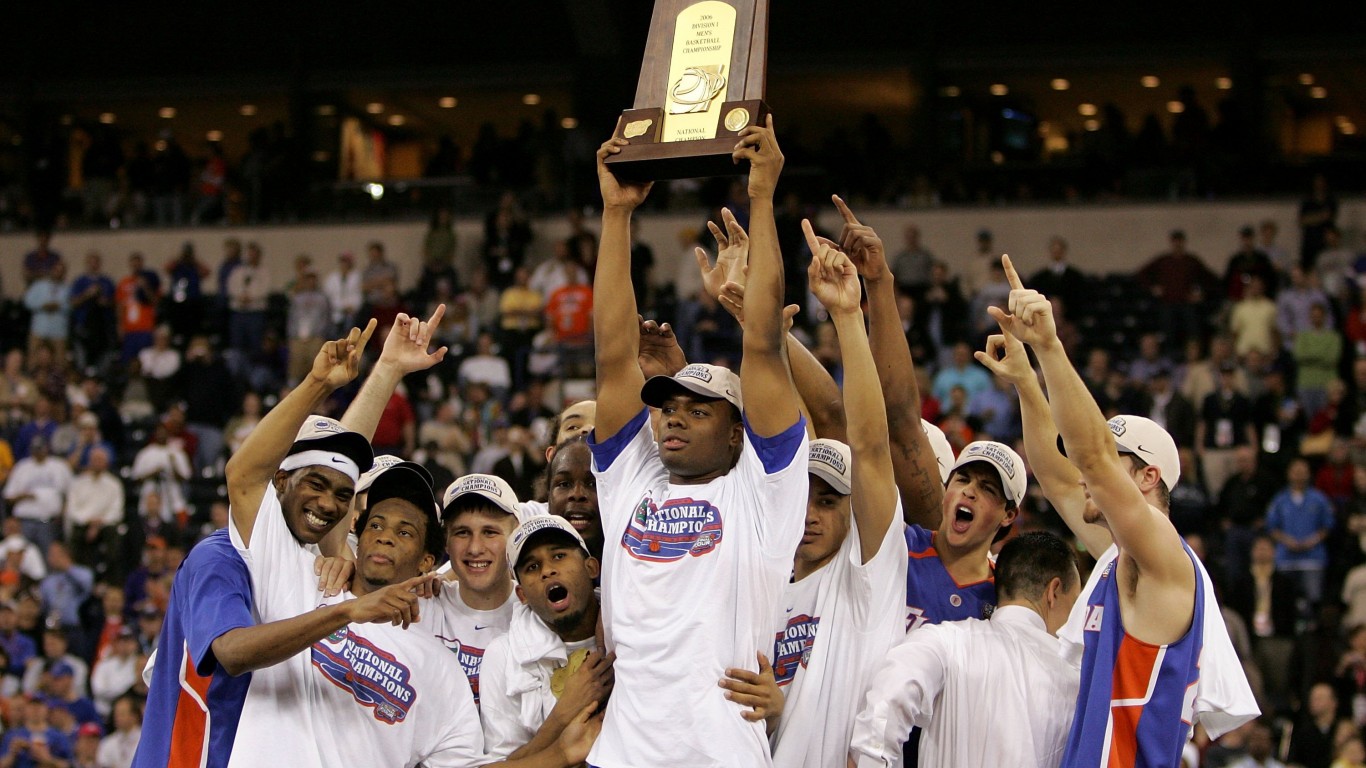
9. Florida
> NCAA Tournament championships: 2
> Years won: 2007, 2006
Though Florida is known more as a football school, the Gators are one of just 15 basketball programs with multiple NCAA Tournament championships. Florida’s titles came in back-to-back seasons under head coach Billy Donovan. The two Gators teams were loaded with talent, as six of the 14 players on the 2007 title-winning team made it to the NBA – Taurean Green, Al Horford, Corey Brewer, Joakim Noah, Chris Richard, and Marreese Speights.
[in-text-ad]
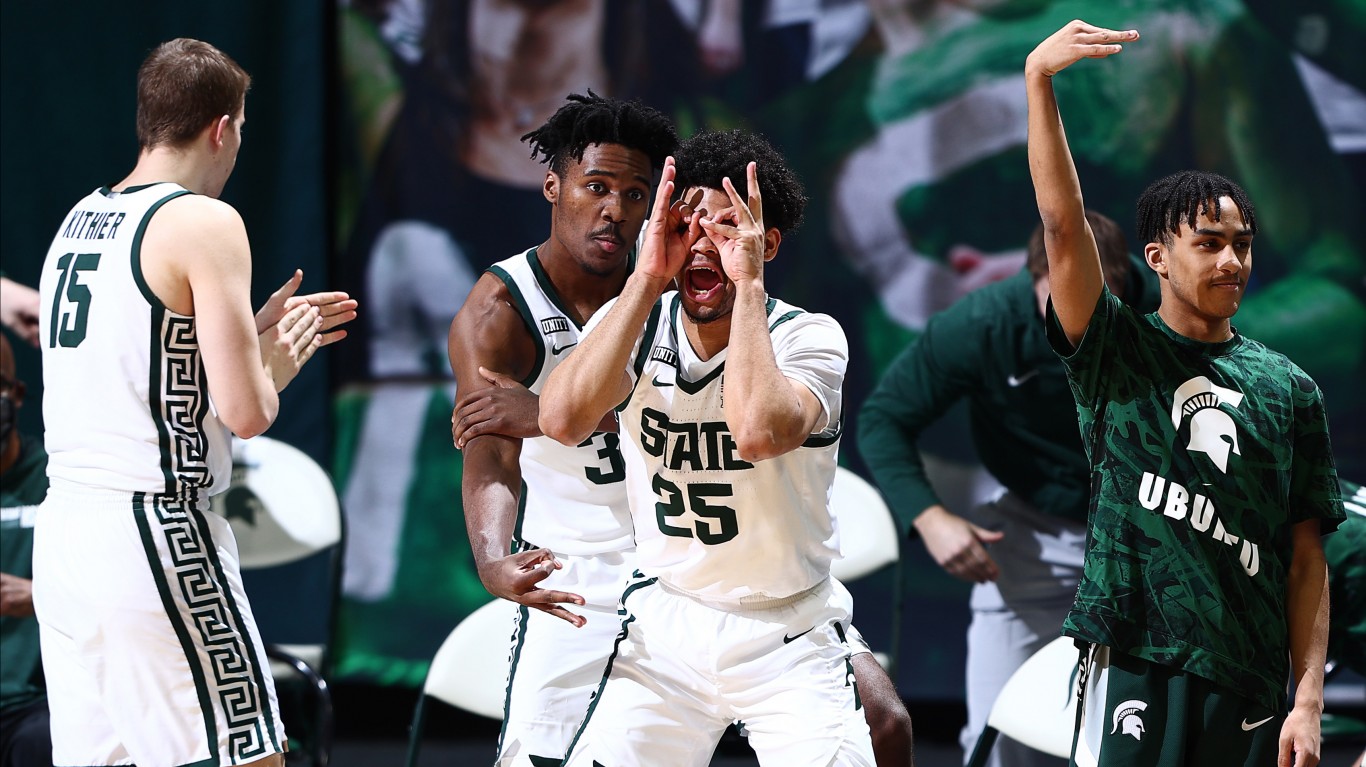
9. Michigan State
> NCAA Tournament championships: 2
> Years won: 2000, 1979
Michigan State’s first NCAA Tournament title came in 1979, in one of the legendary matchups in sports history – Magic Johnson’s Spartans defeated an Indiana State team led by Larry Bird. Michigan State became champions again in 2000, when coach Tom Izzo’s team breezed through the tournament, winning all of their games by more than 10 points.
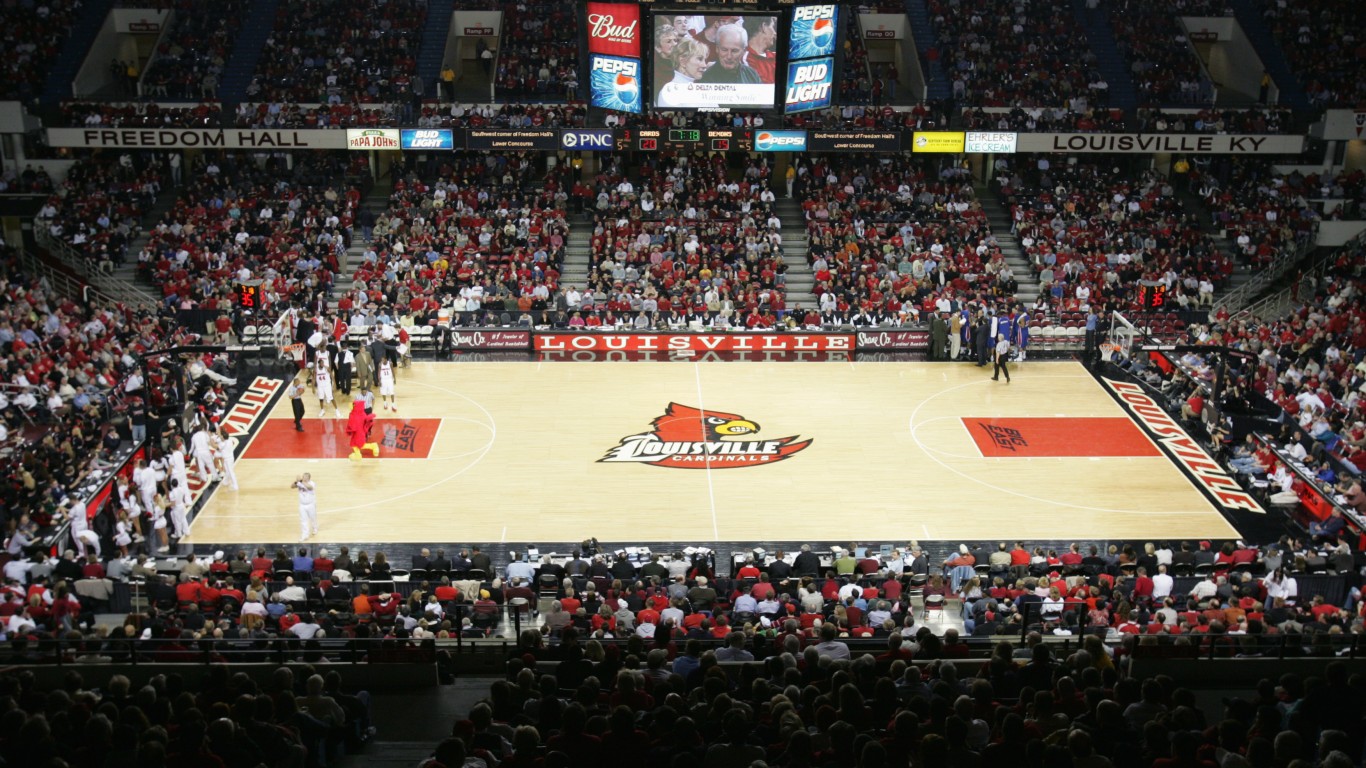
9. Louisville
> NCAA Tournament championships: 2
> Years won: 1986, 1980 (2013 title vacated)
Though Louisville fans have watched their team cut down the nets three times, only two counted as the Cardinals championship in 2013 was vacated after an NCAA investigation found evidence that a former staff member provided inappropriate benefits to players and recruits. However, Louisville’s first two titles still count. Head coach Denny Crum led the team to championships in 1980 and 1986.
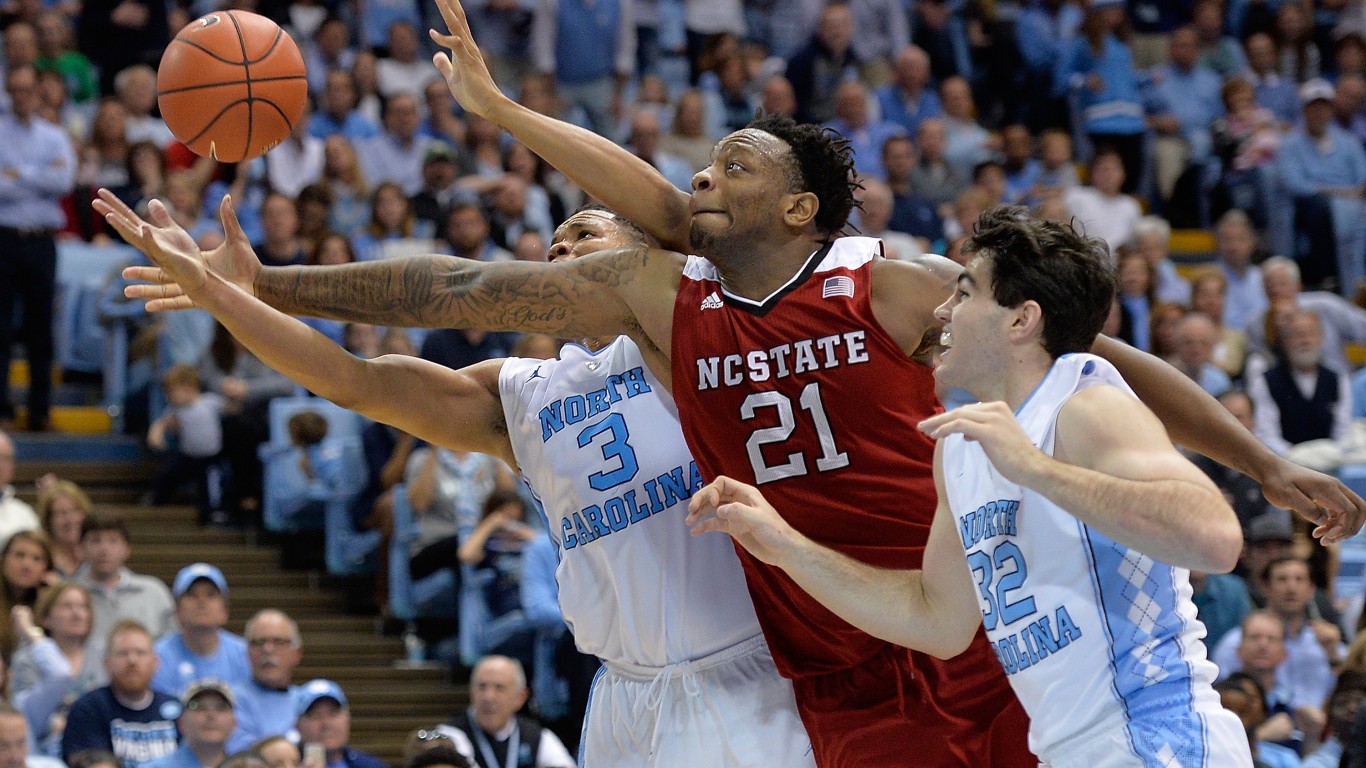
9. NC State
> NCAA Tournament championships: 2
> Years won: 1983, 1974
North Carolina State is one of just 15 teams with multiple NCAA Tournament championships. Unlike many of the two-time champions, NC State’s titles came in two separate eras of the program. In 1974, the Wolfpack went 30-1 under coach Norm Sloan and cruised through the tournament, winning each matchup by at least a dozen points. Nine years later, NC State became one of the tournament’s most surprising champions. Under coach Jim Valvano, the Wolfpack were a six seed that went on a miraculous run, culminating in a last-second dunk to beat Houston for the title.
[in-text-ad-2]
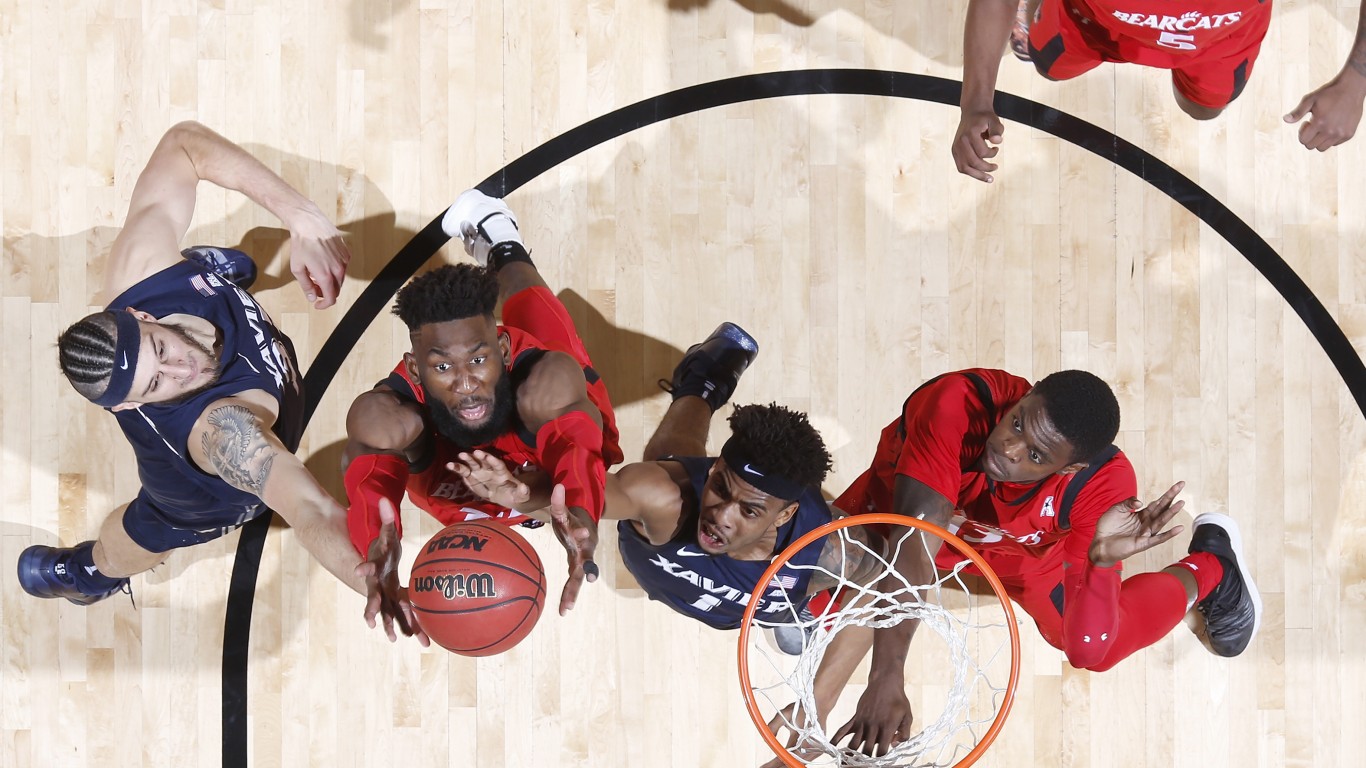
9. Cincinnati
> NCAA Tournament championships: 2
> Years won: 1962, 1961
Cincinnati won back-to-back NCAA titles in 1961 and 1962 under coach Ed Jucker. The teams were loaded with talent. Bearcats players like Bob Wiesenhahn, Paul Hogue, and Tom Thacker would eventually go on to make the NBA. Perhaps most impressively, the team won the two titles after future NBA Hall of Famer Oscar Robertson graduated.

9. San Francisco
> NCAA Tournament championships: 2
> Years won: 1956, 1955
San Francisco won two consecutive NCAA Tournament championships in the 1950s, thanks to the legendary duo of K.C. Jones and Bill Russell. In both seasons, Russell averaged more than 20 points and 20 rebounds per game, and Jones chipped in 10 points per game as well. The pair would go on to win eight NBA titles together with the Boston Celtics. The school’s basketball program frequently made the NCAA Tournament in subsequent years but has fallen off in recent years, making the Big Dance only once since 1982.
[in-text-ad]
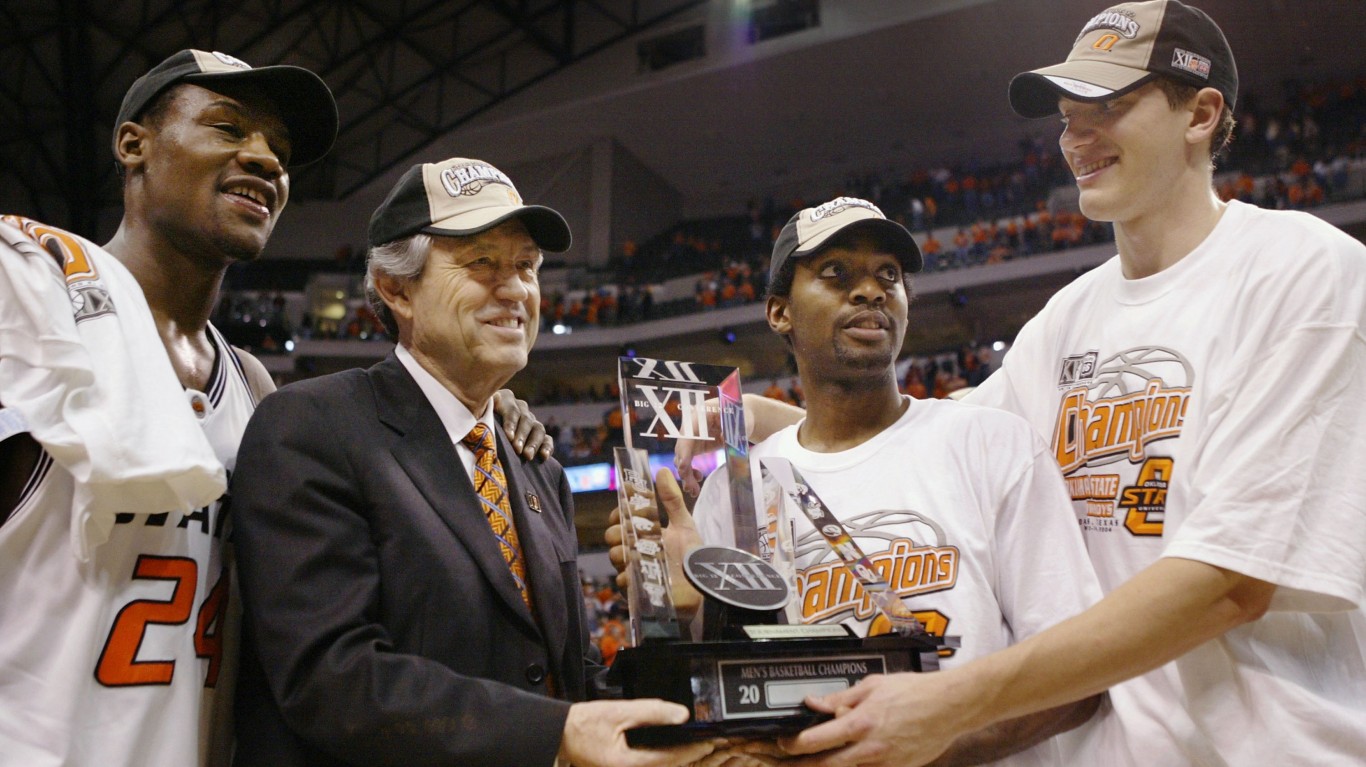
9. Oklahoma State
> NCAA Tournament championships: 2
> Years won: 1946, 1945
Oklahoma State became the first school to win multiple NCAA Tournament titles, finishing as champions in back-to-back seasons in 1945 and 1946. These titles came in the early days of the tournament, at a point when it was considered less prestigious than the National Invitation Tournament, the sport’s top competition at the time.
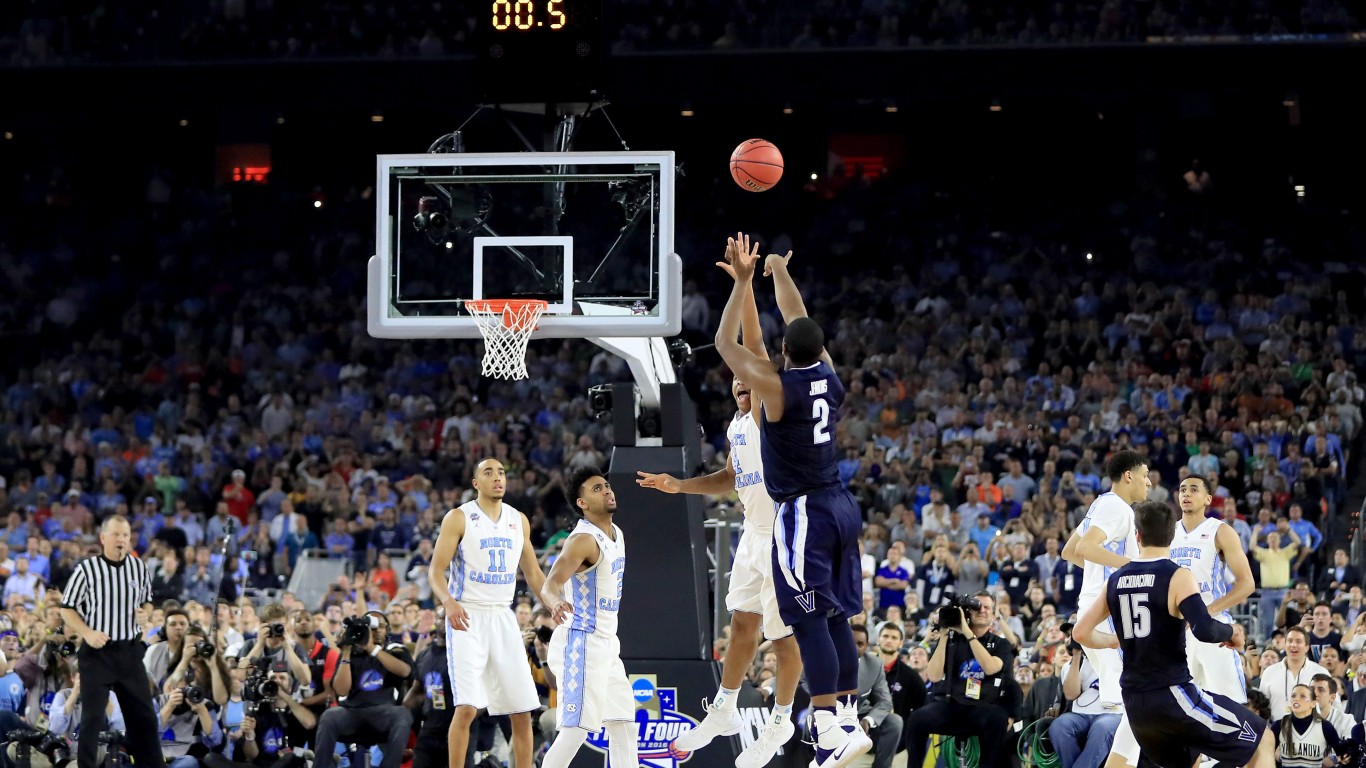
7. Villanova
> NCAA Tournament championships: 3
> Years won: 2018, 2016, 1985
The 1985 Villanova Wildcats are the most improbable NCAA Tournament winners in history, winning the title as an eight seed – the lowest seeded team that has ever won the championship. That team defeated two one seeds and a pair of two seeds to earn the title. More recently, head coach Jay Wright transformed Villanova into a basketball powerhouse, winning the championship in 2016 and 2018. The Wildcats have only missed the tournament once since 2004.
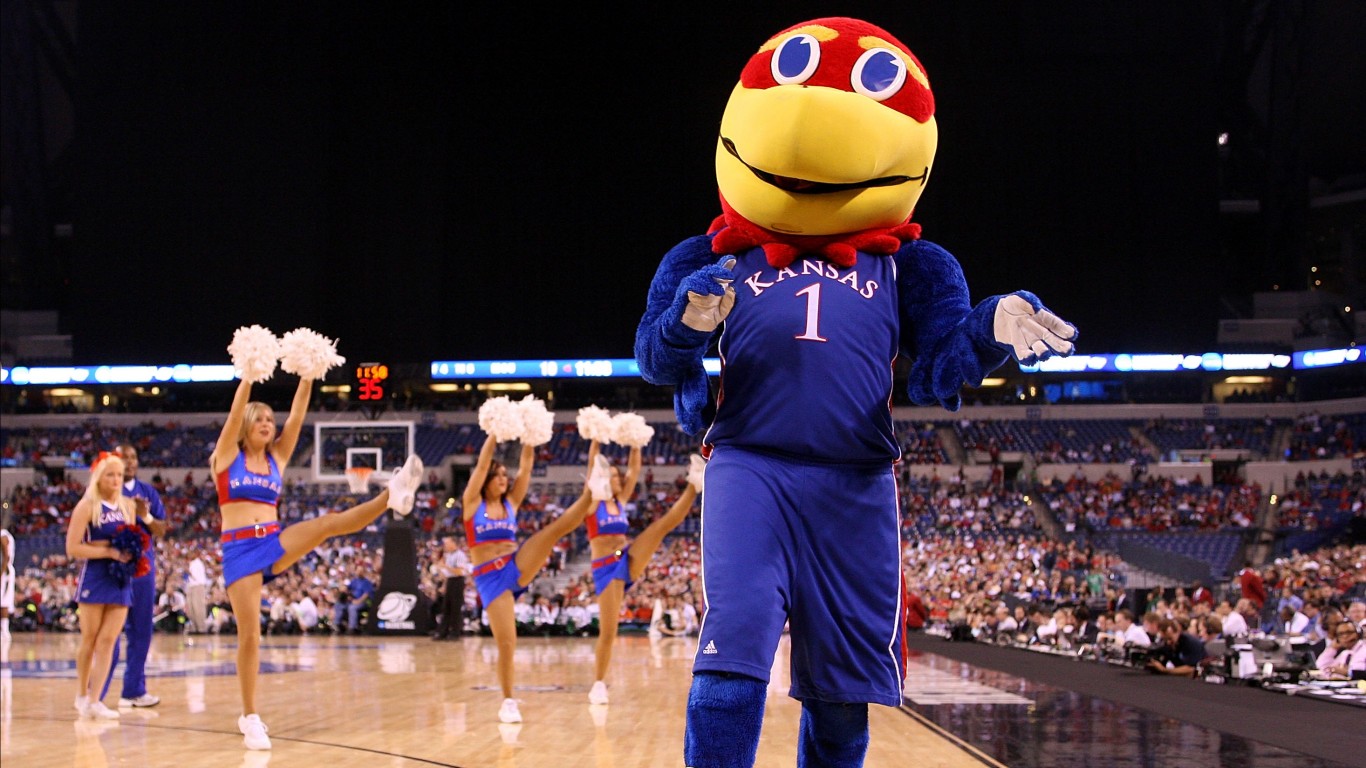
7. Kansas
> NCAA Tournament championships: 3
> Years won: 2008, 1988, 1952
Kansas is one of the most storied basketball schools there is – the college’s first basketball coach, James Naismith, invented the sport. Unlike many of the schools on this list, Kansas has never been able to establish a basketball dynasty, as their three championships in school history were all won decades apart. The first title came in 1952 under legendary coach Phog Allen. In 1988, the team won it all as a six seed under coach Larry Brown. Most recently, Mario Chalmers propelled the 2008 Jayhawks to their third NCAA title.
[in-text-ad-2]

6. UConn
> NCAA Tournament championships: 4
> Years won: 2014, 2011, 2004, 1999
Before the arrival of coach Jim Calhoun in 1986, the University of Connecticut had little basketball history. After his arrival, the Huskies made several deep runs in the tournament, finally culminating in a championship in 1999. Calhoun led teams to championships in 2004 and 2011, before retiring after the 2012 season. His successor, Kevin Ollie, led the Huskies on one of the more improbable runs in 2014, winning the national championship as a seven seed.
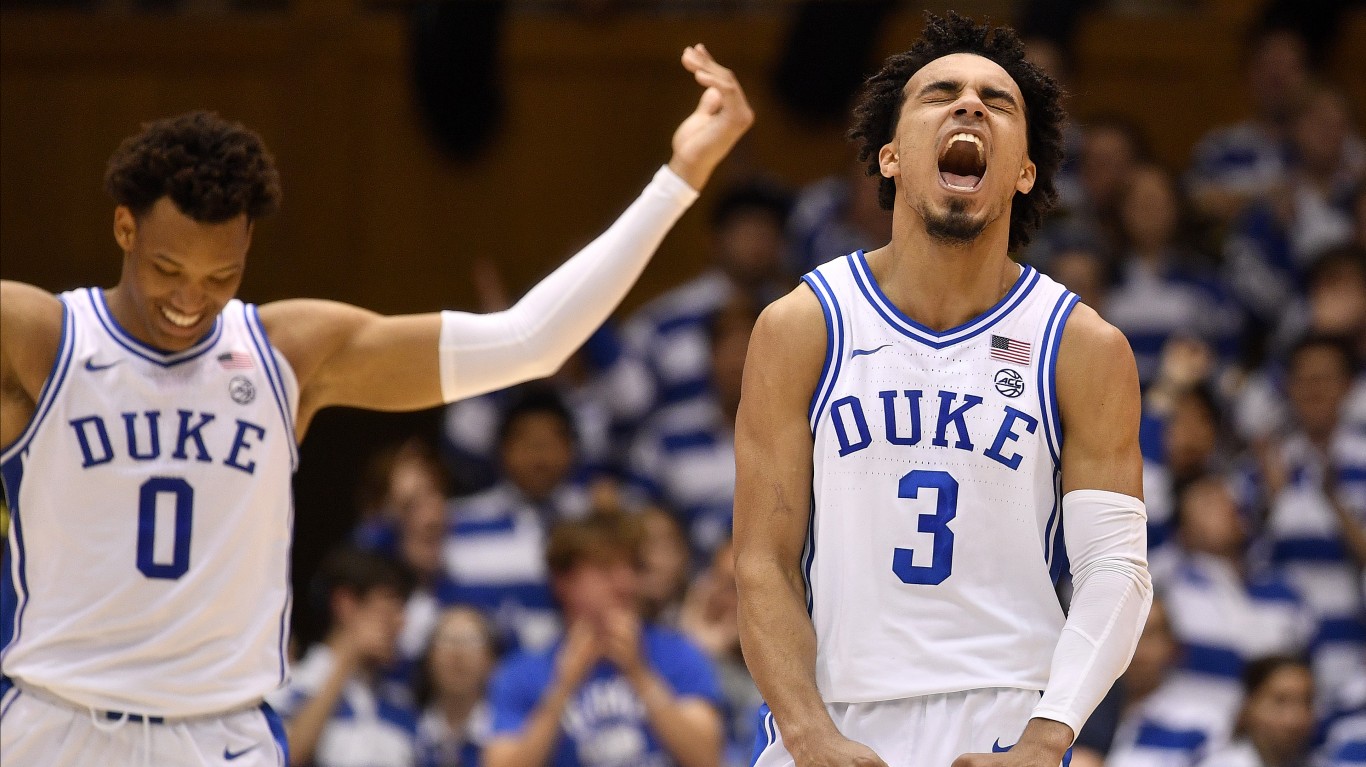
4. Duke
> NCAA Tournament championships: 5
> Years won: 2015, 2010, 2001, 1992, 1991
After the 2022 tournament, legendary coach Mike Krzyzewski will step down as Duke’s coach. Hired in 1980, Coach K is responsible for all five Duke championships. Duke won back-to-back titles in 1991 and 1992, led by Christian Laettner, Grant Hill, and Bobby Hurley. Always a contender under Coach K, Duke won three more titles in 2001, 2010, and 2015.
[in-text-ad]
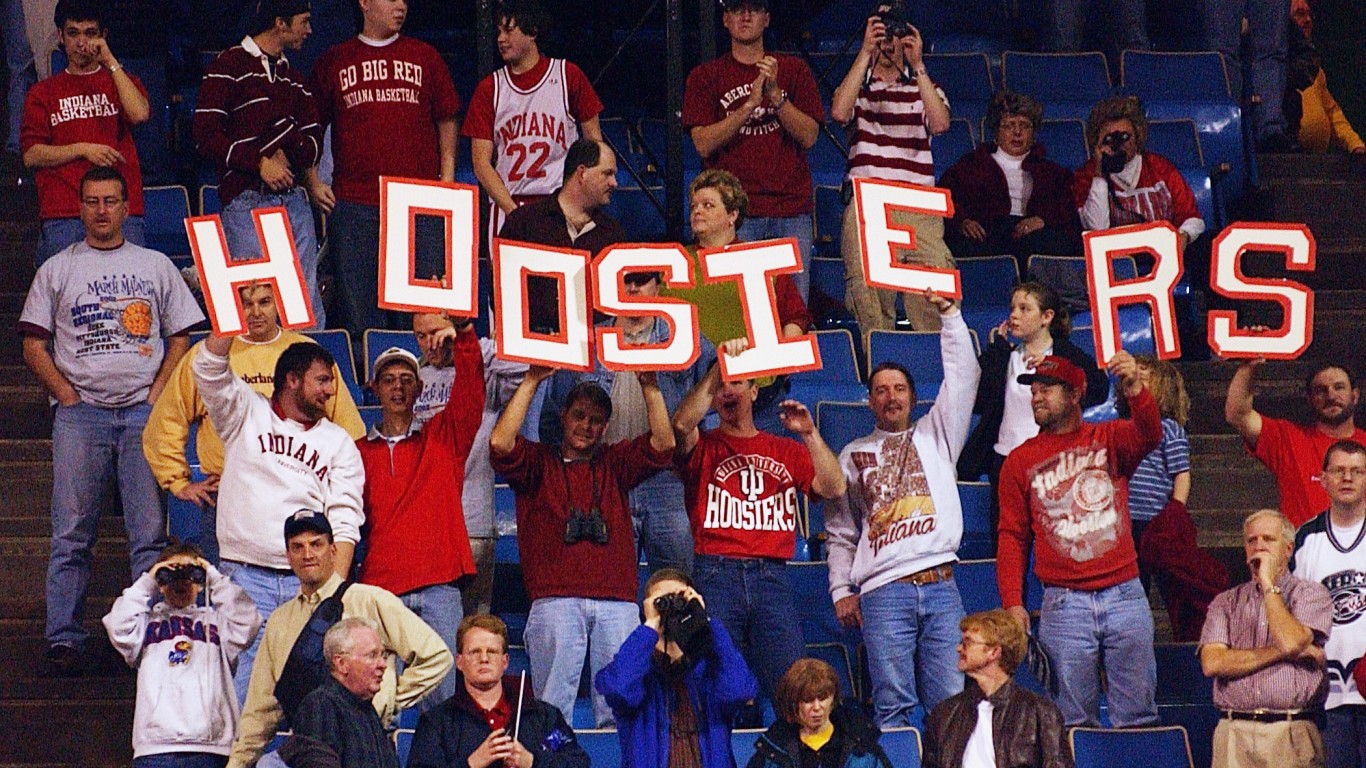
4. Indiana
> NCAA Tournament championships: 5
> Years won: 1987, 1981, 1976, 1953, 1940
Indiana has had one of the best college basketball programs for the better part of a century. The Hoosiers won the second ever NCAA Tournament in 1940, then won another in 1953 – both under head coach Branch McCracken. Later on, Bob Knight led Indiana back to glory, guiding the Hoosiers to three championships in the space of a dozen years in the 1970s and 1980s. Indiana’s basketball program has fallen on hard times recently, missing the tournament each year since 2016.
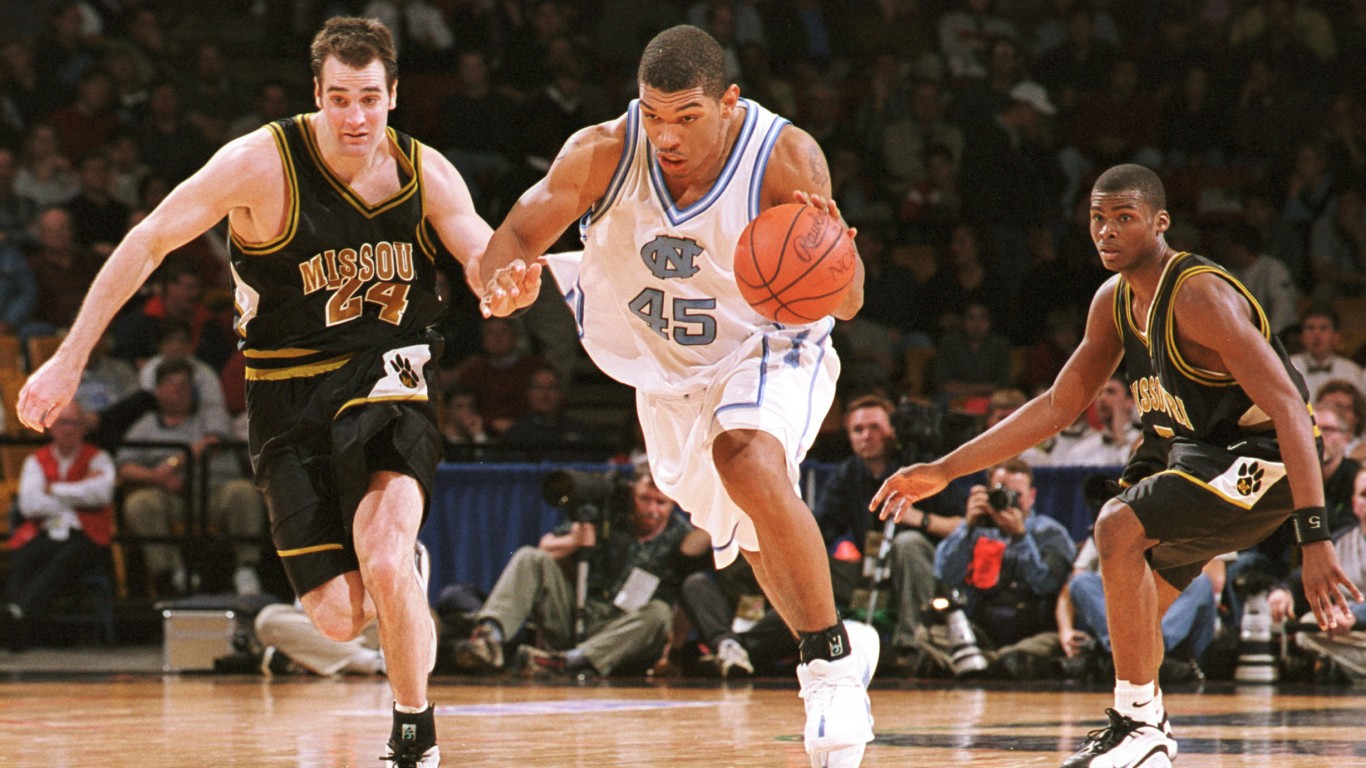
3. UNC
> NCAA Tournament championships: 6
> Years won: 2017, 2009, 2005, 1993, 1982, 1957
The University of North Carolina has won six national championships, more than all but two other schools, thanks to the tutelage of some legendary coaches. Frank McGuire led the Tar Heels to their first title in 1957. His successor, Dean Smith, would go on to be one of the most successful coaches in college basketball history, winning titles in 1982 and 1993. Smith’s successor, Roy Williams, would go on to be even better, winning three titles in 2005, 2009, and 2017. Williams retired after the 2021 season.
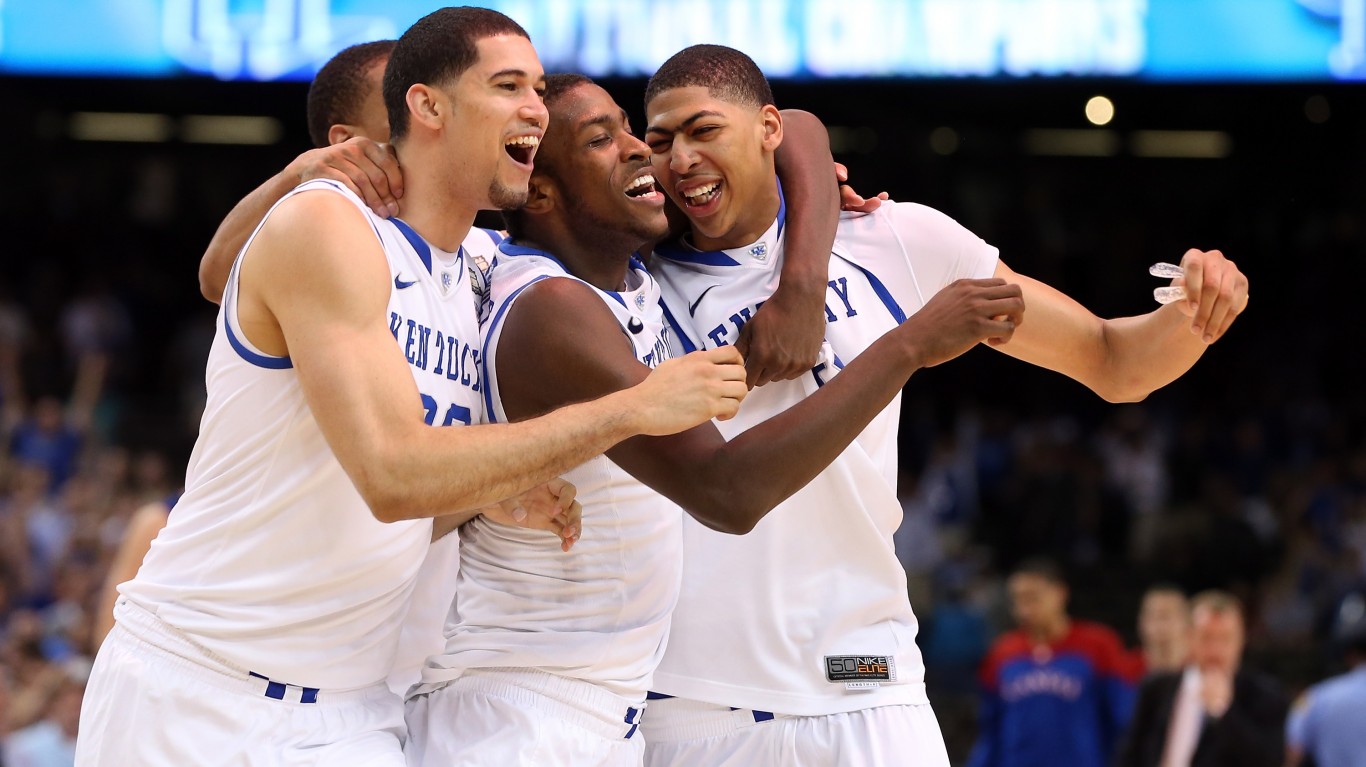
2. Kentucky
> NCAA Tournament championships: 8
> Years won: 2012, 1998, 1996, 1978, 1958, 1951, 1949, 1948
Kentucky was one of college basketball’s first powerhouse programs under coach Adolph Rupp. The Wildcats won three titles in the space of four years, winning the 1948, 1949, and 1951 NCAA Tournaments, then another in 1958. Kentucky fans had to wait 20 more years for a fifth title, as coach Joe Hall led the team to the 1978 title.
Kentucky won another title in 1996 under coach Rick Pitino, who left the school after 1997 to coach the NBA’s Boston Celtics. Yet Kentucky won another title the year after he left, in 1998, under Tubby Smith. John Calipari led Kentucky to their most recent title, in 2012.
[in-text-ad-2]
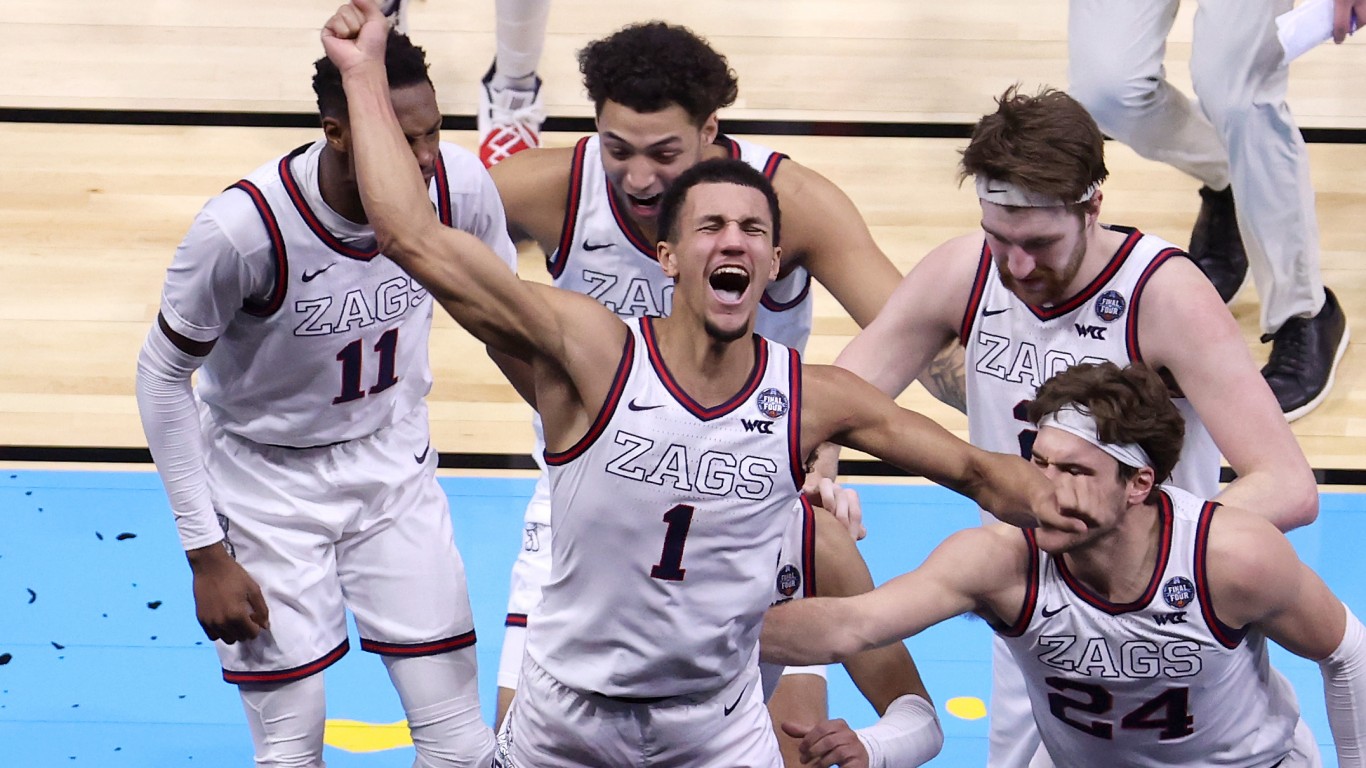
1. UCLA
> NCAA Tournament championships: 11
> Years won: 1995, 1975, 1973, 1972, 1971, 1970, 1969, 1968, 1967, 1965, 1964
UCLA has by far the most NCAA Tournament championships, with 11. UCLA put together one of the greatest dynasties in college sports history, winning 10 titles in 12 seasons under legendary head coach John Wooden in the 1960s and 1970s. Those teams were buoyed by legendary players like Bill Walton and Kareem Abdul-Jabbar (then Lew Alcindor). UCLA tacked on its 11th title in school history in 1995.
In 20 Years, I Haven’t Seen A Cash Back Card This Good
After two decades of reviewing financial products I haven’t seen anything like this. Credit card companies are at war, handing out free rewards and benefits to win the best customers.
A good cash back card can be worth thousands of dollars a year in free money, not to mention other perks like travel, insurance, and access to fancy lounges.
Our top pick today pays up to 5% cash back, a $200 bonus on top, and $0 annual fee. Click here to apply before they stop offering rewards this generous.
Flywheel Publishing has partnered with CardRatings for our coverage of credit card products. Flywheel Publishing and CardRatings may receive a commission from card issuers.
Thank you for reading! Have some feedback for us?
Contact the 24/7 Wall St. editorial team.
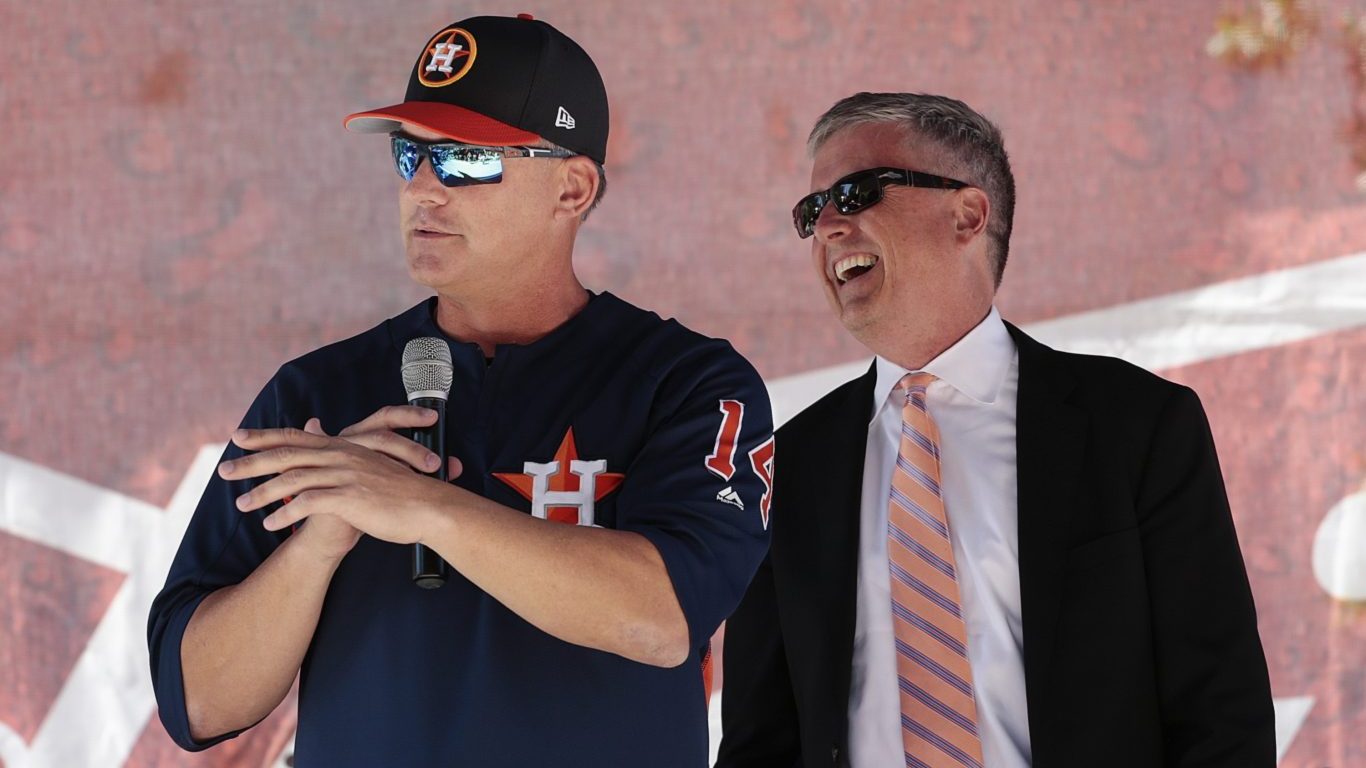 24/7 Wall St.
24/7 Wall St.
